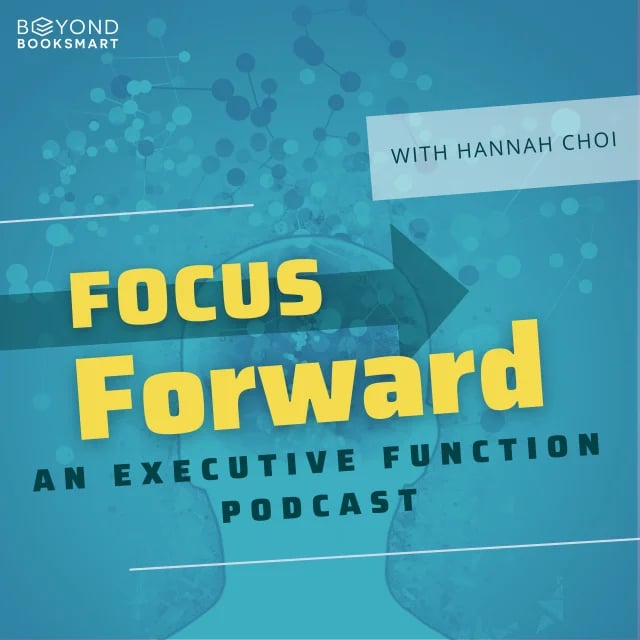
For many people (especially those with Executive Function challenges), managing money can be really stressful. If you can relate...
College is an opportunity for personal and professional growth. However, those with poor Executive Function skills may find it challenging to manage it all alone. Beyond BookSmart supports students with the tools and techniques they need to learn to manage schoolwork, overcome procrastination, stay organized, and transition into adulthood. Get in touch with our team to learn more about working with an Executive Functioning coach for college students!

Schedule a demo with one of our Executive Function coaches to start improving your EF skills!
.png?width=940&height=788&name=Student%20EF%20Assessment%20Graphic%20(5).png)
College presents opportunities for much freedom with little accountability to complete tasks and organize one’s calendar. Students are faced with challenges of procrastination, time management issues, and/or poor task initiation. You may have difficulty organizing class materials, losing track of syllabi and assignment due dates, and not knowing how to approach writing assignments or long-term projects.
Academically, college introduces new levels of rigor and responsibility that can be difficult to manage without strong Executive Function skills. Many students struggle to keep up with heavy reading loads, frequent exams, and long-term projects that require consistent effort over time. You may find it challenging to plan ahead, break large tasks into smaller steps, or study effectively without cramming. These difficulties can lead to missed deadlines, lower grades, and increased stress if not addressed with intentional strategies and support.
Time management is one of the biggest challenges college students face. With a full schedule of classes, assignments, extracurriculars, and social commitments, it’s easy to feel like there’s never enough time in the day. You may find yourself procrastinating, underestimating how long tasks will take, or missing deadlines altogether. Without a clear system for prioritizing and planning, responsibilities can quickly pile up.

The complexities of relationships are heightened with one who has poor Executive Function skills. Challenges that may arise for a college student include, identifying social cues, sustaining friendships, miscommunication, and/or frequent interruptions.
With newfound independence and social pressures, it’s easy to become overwhelmed by stress, anxiety, or frustration. This can cause struggles regulating emotions, recovering from setbacks, difficulty settling down to do work, or staying motivated when faced with challenges. Inability to resist online or social distractions, impulsive decisions, burnout, and difficulty maintaining healthy habits are also common.
With the many expectations and responsibilities of a college student, well-being is extremely important. Those with Executive Functioning challenges may find themselves easily overwhelmed, operating under low confidence or self-esteem, and/or having trouble with managing their emotions and impulses.
In preparation for life after college, many students find themselves stressed about what is to come next and how to prepare. A student with low Executive Functioning skills may find this even more difficult in preparing for graduate school, entrance exams, and/or completing applications and preparing for job interviews.
In getting the most out of one’s college experience, many students are encouraged to excel in academics, participate in service activities, join a student organization, and have a full social life. These numerous involvements can lead to stress or anxiety in finding a sense of stability and harmony within one’s daily routine.
.png?width=1080&height=1080&name=new%20website%20image%20templates%20(7).png)
Beyond BookSmart’s Executive Function coaches can be a valuable ally for college students looking to strengthen their academic and personal skills. Through one-on-one support, our coaches help students identify areas of struggle—such as organization, time management, or emotional regulation—and develop personalized strategies to overcome them. Coaching focuses on building practical tools like using planners effectively, breaking down assignments, creating study routines, and managing distractions. Beyond academics, a coach also helps students set meaningful goals, maintain motivation, and build confidence in their ability to manage the demands of college life. Over time, students gain greater independence and self-awareness of their strengths and weaknesses, setting the foundation for long-term success.
Book a free consultation to learn more about Executive Function coaching for college students!
.png?width=1080&height=1080&name=new%20website%20image%20templates%20(6).png)
Our Executive Function coaches use evidence-based strategies designed to help young adults strengthen their focus, organization, and self-management skills. Each approach is personalized to match the student’s unique learning style and goals, making it easier to turn new habits into lasting routines. Read more about some of our top Executive Functioning strategies for college students below.
Creating a calendar system that works for you is one of the most effective ways to stay on top of college life. Rather than forcing yourself to use a tool or format that doesn’t fit your style, find a system that feels intuitive and easy to maintain. Use your calendar to track class times, assignment deadlines, exams, and personal commitments in one place. Color-coding, reminders, and recurring events can help you visualize your schedule and prevent last-minute surprises.
Large assignments can feel overwhelming, but breaking them into smaller, manageable tasks makes them far more approachable. Start by reviewing the assignment requirements and deadlines, then outline each step needed to complete it from research and outlining to drafting and editing. Assign specific dates or time blocks to each step so you can make steady progress without cramming at the last minute.

Effective time management starts with finding strategies that fit your personal rhythm and workload. Try using techniques like the Pomodoro Method, where you work in focused 25-minute intervals followed by short breaks to maintain concentration and prevent burnout. Or consider trying the Time Blocking method, which entails scheduling specific chunks of your day for classes, studying, meals, and rest to create structure and reduce decision fatigue. Another helpful tool is prioritization, such as the Eisenhower Matrix, which helps you distinguish between what’s urgent and what’s important.
Developing strong study habits is key to staying focused and retaining information. Start by studying in a distraction-free space, breaking sessions into shorter, focused periods, and reviewing material regularly instead of cramming before exams. Active study techniques, like summarizing notes, teaching the material to someone else, or using flashcards, help deepen understanding and improve recall.
It’s also important to reward yourself for your effort and consistency. Small incentives, like taking a walk, grabbing a snack, or watching an episode of your favorite show, can keep you motivated and make studying feel more sustainable. Building in rewards reinforces positive habits and reminds you that progress deserves to be celebrated.
Our EF coaches always remind students that reaching out for support is a vital part of thriving in college and no one is expected to manage everything alone. Most campuses offer a range of resources, such as academic advising, tutoring centers, writing labs, and counseling services, all designed to help you succeed. Beyond academics, leaning on family, friends, or partners can provide encouragement and accountability.


Whether you're a parent looking to better support your child or are simply looking to improve your own Executive Function skills, this podcast is for you.

For many people (especially those with Executive Function challenges), managing money can be really stressful. If you can relate...
Check out our variety of resources and tips on Executive Function support, ADHD, mental health, and more.
Job searching can be hard for anyone, but for adults with ADHD, it often feels uniquely exhausting, perhaps even bordering on...